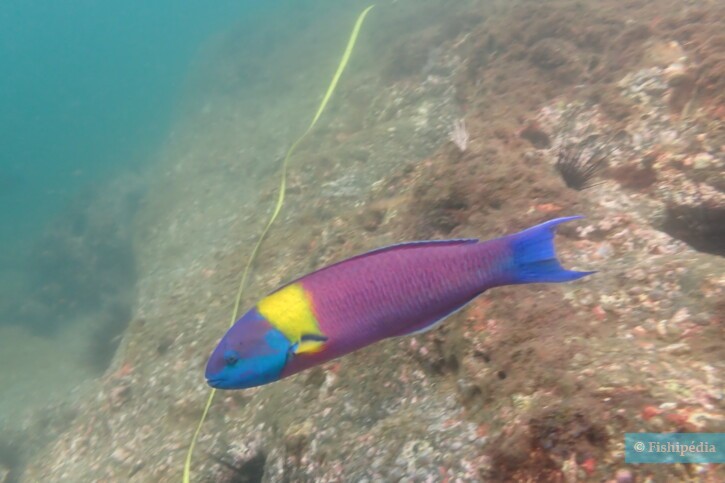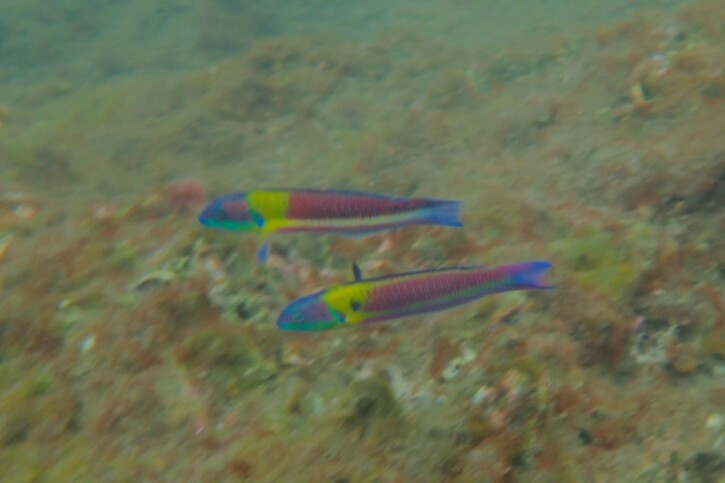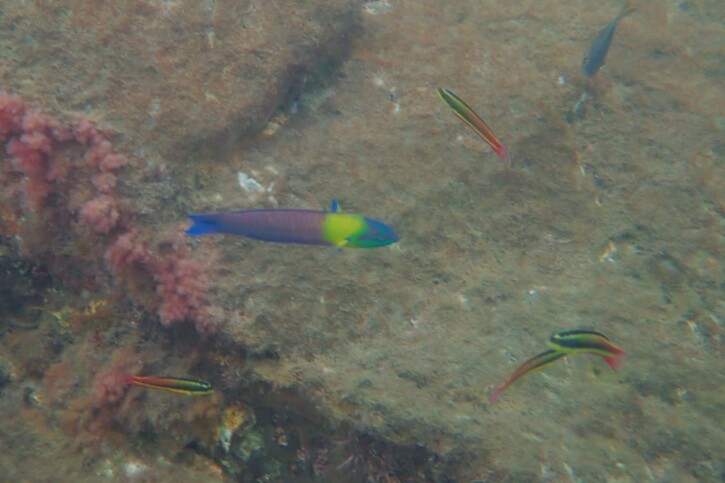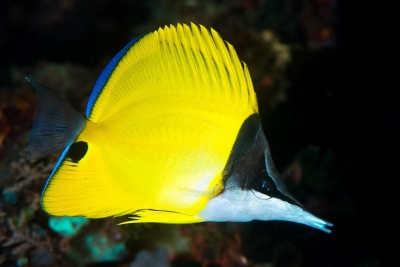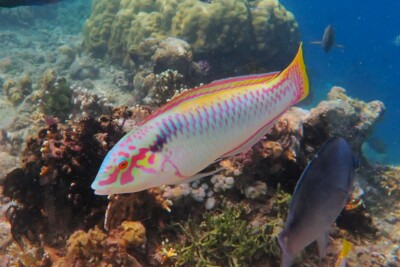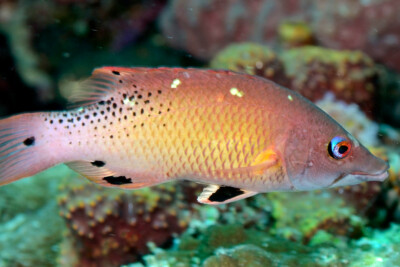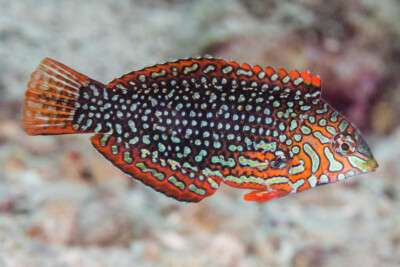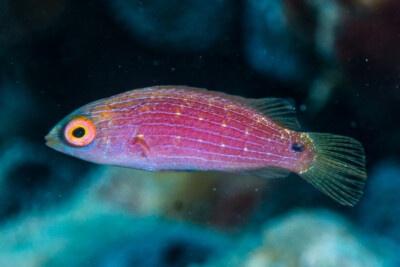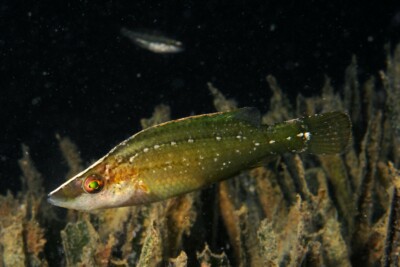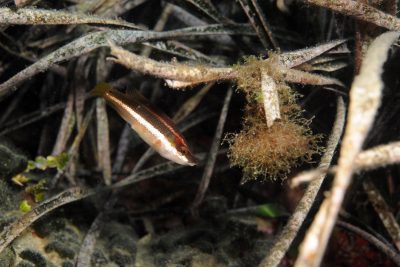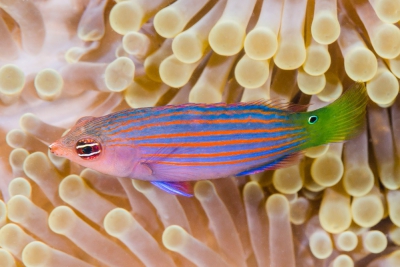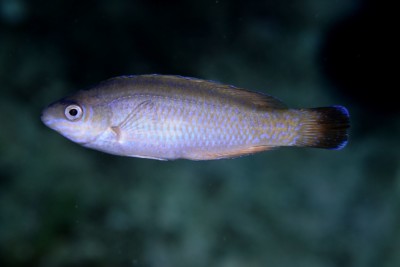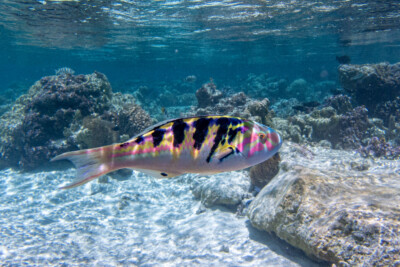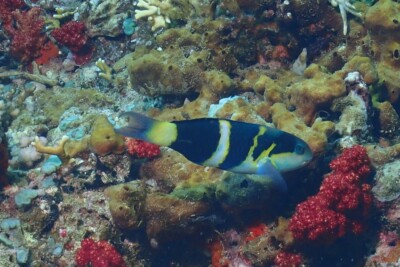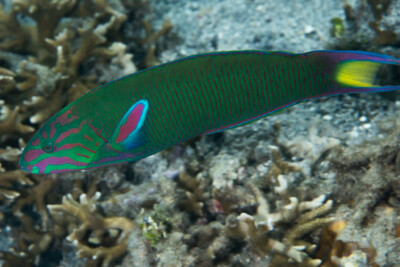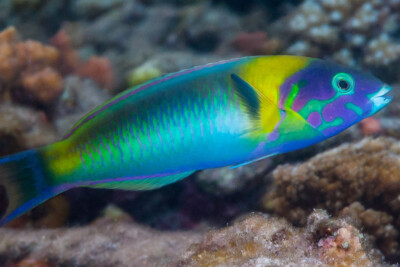cortez rainbow wrasse
| Scientific name | Thalassoma lucasanum |
|---|---|
| Descriptor | Gill |
| Year of description | 1862 |
| IUCN category (World) | LC |
| Family | Labridae |
| Genus | Thalassoma |
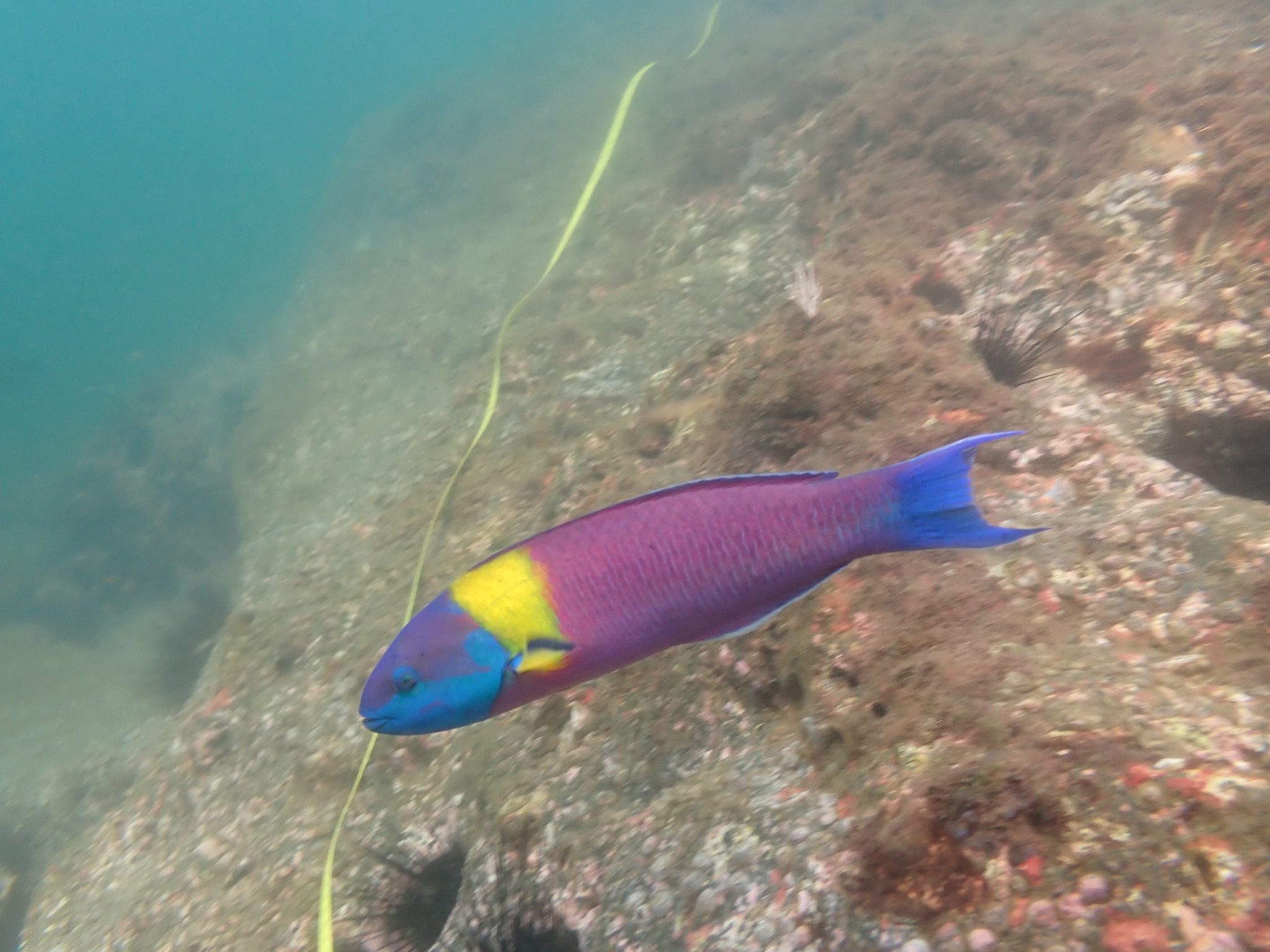

Introduction
Thalassoma lucasanum, commonly known as cortez rainbow wrasse, is a salt water fish.
This sheet is currently being prepared. The texts currently proposed come from our data model or are being drafted. To request priority for this content, you can write to us HERE.
Who is it?
Morphology
-
Type
-
Average size12 cm
-
Maximum size15 cm
-
Patternrayure verticale
-
Type
-
Average size12 cm
-
Maximum size15 cm
-
Patternrayure verticale
How to recognize This fish ?
The cortez rainbow wrasse measures around 12 cm. The dominant males can however reach 15 cm. This fish is multicolore with a predominantly jaune and rose body. The also has jaune rayure verticale.
Sexual dimorphism
The adult male is bigger than the female.
Behaviour & Life cycle
-
dietcarnivorous
-
Sociabilityliving in a group or alone
-
territorialYes
-
Way of livingdiurnal
The cortez rainbow wrasse is a fish living in a group or alone naturally found near the bottom. This species is carnivorous .
The cortez rainbow wrasse is a territorial animal that does not tolerate any incursions into its living area. It is particularly virulent against other territorial species and it can provoke heated fights. Relationships between conspecifics are also hectic, with each seeking to secure its place.
Reproduction
-
Reproductionovipare qui pond en eau libre
-
Hermaphroditeprotogynous_potentially
The cortez rainbow wrasse is a fish ovipare qui pond en eau libre.
Harmless species
This species does not represent any particular threats to humans when encountered in its natural environment.
Origin and distribution
What is its habitat?
Natural environment characteristics
-
Temperature22 - 28 °C
-
Depth0 - 60 m
-
FlowMedium and Slow
Biotope presentation
The cortez rainbow wrasse is most often found at a depth between 0m and 60m. However, it is not impossible to find this species at other depths.
Species of the same biotope
To go further
Sources & Contributions
Participation & Validation
The Fishipedia team and specialist contributors are committed to providing high-quality content. However, although the information comes from scientific sources or testimonials from specialists, the cards may contain inaccuracies.

AlboertoAlcala

Benoit Chartrer
Translation
Translation done with the valuable contribution of our translators, who make this information available to a wider audience. We sincerely thank them for their commitment.
Bibliographic references
Aproximación a la dieta de Thalassoma lucasanum (familia Labridae) en el arrecife coralino de La Azufrada, isla Gorgona - Palacios-Narváez, S. - Valencia, B. - Giraldo, A. - Pacífico Oriental Tropical. Bull. Mar. Coast. Res. - 2020.
Efectos de la industria de peces ornamentales en Costa Rica sobre las poblaciones de la vieja de Cortés Thalassoma lucasanum. - McCauley, D.J. - Joyce, F.J. - Lowenstein, J.H. - Ciencias marinas - 2008.
Thalassoma lucasanum - Allen G. - D. Ross Robertson - Edgar, G. - Rivera, F. - Zapata, F. - Merlen, G. - Barraza, E. - Victor, B. - Medina, B. - The IUCN Red List of Threatened Species - 2010.
Labridae. Viejas, doncellasas, señoritas. p. 1201-1225. In W. Fischer, F. Krupp, W. Schneider, C. Sommer, K.E. Carpenter and V. Niem (eds.) Guia FAO para Identification de Especies para lo Fines de la Pesca. Pacifico Centro-Oriental. 3 Vols - MARTIN F. GOMON - FAO Fisheries Synopsis - 1995.
Fishes of the Tropical Eastern Pacific - Allen G. - D R Robertson - Hawaii Press - 1994.
Scientific partners
Tags
Species of the same family
Same genus
Species of the same biotope
